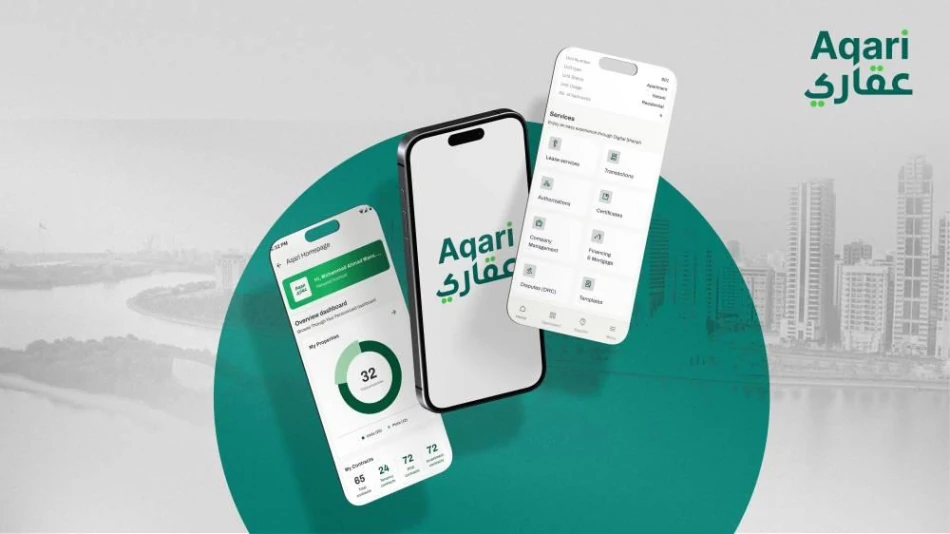
Sharjah Real Estate Authority Completes 2,000 Digital Transactions
Sharjah's Digital Real Estate Revolution: 'Aqari' Platform Records 2,000 Transactions in Six Months
The UAE's third-largest emirate is positioning itself as a regional leader in property technology, with Sharjah's integrated digital real estate platform 'Aqari' processing over 2,000 fully electronic transactions within just six months of operation. The platform represents a significant leap in the Gulf region's ongoing digitization of real estate services, potentially setting new standards for government-led proptech initiatives across the Middle East.
Rapid Market Adoption Signals Strong Digital Appetite
Developed by Sharjah Digital Department in collaboration with over 20 local and federal government entities, the Aqari platform has demonstrated remarkable uptake since its launch. The 2,000+ completed transactions span company management services, agency registrations, and property unit listings—all processed entirely online without traditional paperwork delays.
The platform's database expansion tells an equally compelling story: over 42,000 new property units have been registered alongside more than 1,300 buildings, with vacant land registrations exceeding two million square meters. This rapid data accumulation suggests both strong market confidence and effective government coordination.
Full Government Integration Achieved
Perhaps most notably, 12 government centers have achieved 100% platform adoption rates, supported by over 90 certified administrative users. This level of institutional buy-in is relatively rare in government digitization projects, where partial adoption and resistance to change often hamper effectiveness.
Strategic Positioning in Regional Proptech Race
Sharjah's digital push comes as Gulf states increasingly compete to attract real estate investment through technological innovation. Dubai's blockchain-based property transactions and Abu Dhabi's smart city initiatives have set high benchmarks, while Saudi Arabia's NEOM project promises revolutionary urban planning integration.
The timing appears strategic. As global real estate markets face uncertainty from rising interest rates and economic volatility, jurisdictions offering streamlined, transparent property processes gain competitive advantages. International investors and developers increasingly factor regulatory efficiency into location decisions, making platforms like Aqari potential economic drivers beyond mere administrative convenience.
Expansion Roadmap Targets Comprehensive Market Coverage
Current services focus on foundational elements—company management, agency registration, and property listings—but planned expansions reveal broader ambitions. Future phases will introduce rental services, rental dispute resolution, property transactions, and specialized tools for developers and real estate brokers.
This phased approach mirrors successful proptech rollouts in Singapore and Estonia, where governments built comprehensive digital ecosystems gradually rather than attempting immediate full-scale transformation. The strategy reduces implementation risks while allowing continuous user feedback integration.
Mobile-First Approach Reflects Modern Expectations
Available through web portals and mobile applications on both Android and iOS platforms, Aqari acknowledges that modern real estate professionals and investors expect seamless mobile access. This mobile-first design philosophy aligns with broader UAE digitization trends and younger demographic preferences.
Market Implications for Investors and Developers
For international real estate investors, streamlined government processes reduce transaction costs and timeline uncertainties that often complicate Gulf property investments. Developers particularly benefit from integrated systems that eliminate bureaucratic bottlenecks during project approval and registration phases.
The transparency element cannot be understated. Digital platforms create audit trails and standardized processes that reduce corruption risks and regulatory ambiguity—factors that institutional investors increasingly demand when evaluating emerging market opportunities.
Measuring Success Against Regional Competitors
While Dubai remains the UAE's dominant real estate market, Sharjah's technological infrastructure improvements could narrow competitive gaps. The emirate offers lower property prices and less market volatility, and enhanced digital services may attract investors seeking alternatives to Dubai's premium pricing.
Sheikh Saud bin Sultan Al Qasimi, Director General of Sharjah Digital Department, emphasized that the platform reflects the emirate's comprehensive digital transformation vision, placing "humans at the heart of every development." This human-centric approach distinguishes Sharjah's strategy from purely efficiency-focused digitization efforts elsewhere.
The success metrics achieved in just six months suggest that government-led proptech initiatives can achieve rapid adoption when properly designed and implemented. As other regional governments observe Sharjah's results, similar platforms may proliferate across the Gulf, potentially reshaping how property markets operate throughout the Middle East.
Most Viewed News

 Omar Rahman
Omar Rahman






